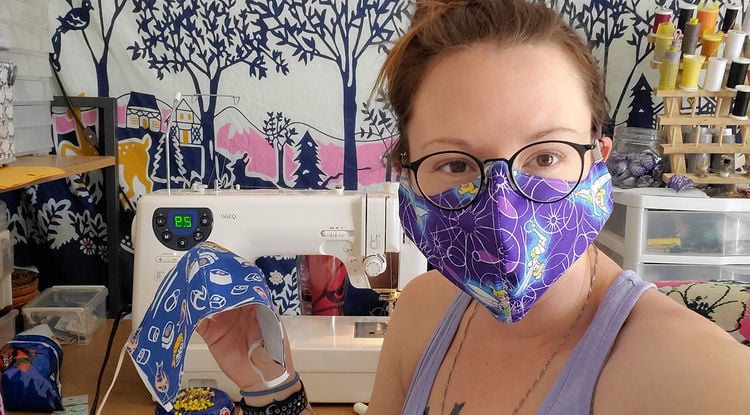A group of University of Arizona researchers is working to provide hand sanitizer for health-care workers battling the coronavirus in Southern Arizona.
The 12-person team is being led by Gayatri Vedantam and V.K. Viswanathan, associate professors in the animal and comparative biomedical sciences department, where they study bacterial infections in humans and animals.
The department had to scale down its research projects on bacterial infectious diseases due to the coronavirus pandemic.
“At the same time, our entire group came to the realization that stepping back was not aligned with what we do as scientists,” Vedantam said in a UA news release.
They’re using World Health Organization guidelines to prepare the sanitizer, wearing protective gear to lessen the risk for lab personnel and “develop an end product of the highest quality,” the news release said.
Vedantam said the team is already facing a shortage of plastic, travel-sized bottles and small spray bottles and will soon need more ingredients to fulfill requests.
While supplies are limited, the group is trying to fulfill requests from health-care facilities, including the Carondelet Health Network and UA’s Campus Health.
“Our first priority is to help health-care workers. They are at very high risk, and they are critical for our efforts to combat this outbreak,” Vedantam said.
Students aid with mask shortages
Meanwhile, UA fine arts students are putting their costume-design courses to good use by making masks for Tucson health-care workers.
Rachel Wilkins, Elizabeth Eaton and Ryan B. Moore, master of fine arts students, and Maryan Trombino-Arthur, manager of the theatre, film and television school’s costume shop, are creating the shell-styled, dual-layered masks that can fit over workers’ surgical masks or N95 respirators.
They have already distributed masks to Banner-University Medical Center Tucson that are in use by the hospital’s trauma team and intensive care unit, a UA news release said.
The group has also received requests from local law enforcement agencies, assisted-living communities and veterinarians’ offices.
They’re creating a tutorial so others can recreate the masks and donate the supplies to those in need.
“Finding out that I can help those who actually can do something was an enormous relief and has given me a renewed purpose,” Wilkins said in the news release.
“The skills I have learned through my years of school have given me the tools I need to make these masks, and donating them lets us show those combating COVID-19 that we are thankful to help them in any way we can.”





